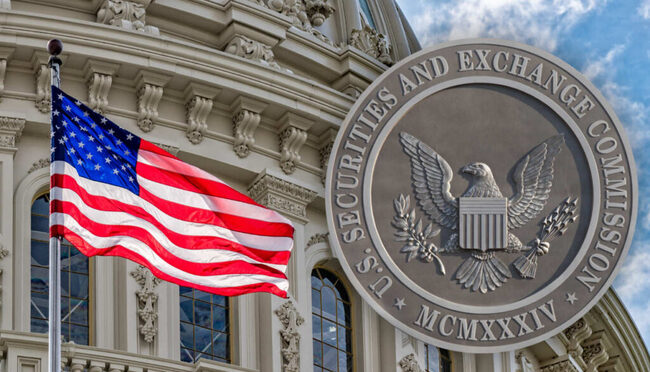Highlights:
- The regulatory agency is accusing Unicoin of misleading investors by inflating figures to lure investors.
- Unicoin raised over millions of dollars using rights certificates tied to future crypto tokens.
- The executives are facing charges for promoting high returns and false property values to attract investors.
The U.S. SEC has accused Unicoin and three of its senior executives of misleading investors in a recent complaint submitted in a New York court. The agency contends that Unicoin raised over $100 million by promoting false claims about their crypto asset offerings. In addition, they made false claims about their company stock.
JUST IN 🚨
The SEC has charged crypto project Unicoin and its top execs with fraud, alleging fake asset claims, false SEC registration, and misleading over 5,000 investors.🧾⚖️ pic.twitter.com/Qltpbng3OP
— Moby Media (@mobymedia) May 21, 2025
The SEC named Alex Konanykhin, Silvina Moschini, and Alex Dominguez in the suit submitted yesterday. The agency stated that the three misled thousands of investors through untrue claims about Unicoin’s assets and sales. The SEC contends that the company inflated the value of their properties.
SEC Accuses Unicoin of Lying About Crypto Asset Backing
According to the SEC, Unicoin sold “rights certificates” that would convert to Unicoin tokens in the future. These tokens, according to the company, were supported by assets from global real estate and equity interests from companies almost going for IPOs. However, the SEC found the company never owned the properties it advertised, and many deals never closed.
The agency pointed out that Unicoin reported selling $3 billion in rights certificates, even though that was not true. In fact, the company only received $110 million in investments. The SEC claims Konanykhin sold over 38 million certificates to investors who were not authorized to purchase them. The suit alleges that the company stated that its tokens were registered with the SEC, when in fact they were not.
Unicoin revealed deals for properties in four countries. The assessment stated that the combined value of those properties was $1.4 billion. Nonetheless, the SEC believes that the majority of sales were never completed, leaving the value at just over $300 million. According to the agency, the information misled investors about the true value of assets belonging to the company.
Unicoin also ran marketing campaigns across airports, taxis, billboards, websites, and TV. The campaigns compared Unicoin’s future value to Bitcoin’s past gains and pushed investors to act early. The SEC described these efforts as deceptive and exaggerated. SEC contends that the company and the CEO violated federal securities laws by engaging in unregistered offers and sales of rights certificates.
Executives and Legal Counsel Named in Complaint
The SEC also went after Richard Devlin, the general counsel of the company. Devlin is accused in the lawsuit of making incorrect statements in private placement materials. The council has accepted a permanent injunction and will pay a $37,500 fine without admitting that he was at fault.
Mark Cave, associate director of the SEC’s Division of Enforcement, said the executives used promises they could not keep. He added that most sales of the rights certificates were not genuine. The SEC is asking the court to order permanent bans on the executives from serving as officers or directors in any public company. The agency also seeks repayment of funds and civil penalties.
Konanykhin, who is the CEO, said he would fight the accusations in court. He said the case does not reflect the current SEC leadership’s views. He blamed former officials for pushing the lawsuit and rejected the SEC’s invitation to settle. Unicoin also said it had followed all U.S. compliance standards and denied any wrongdoing.
Best Crypto Exchange
- Over 90 top cryptos to trade
- Regulated by top-tier entities
- User-friendly trading app
- 30+ million users
eToro is a multi-asset investment platform. The value of your investments may go up or down. Your capital is at risk. Don’t invest unless you’re prepared to lose all the money you invest. This is a high-risk investment, and you should not expect to be protected if something goes wrong.






